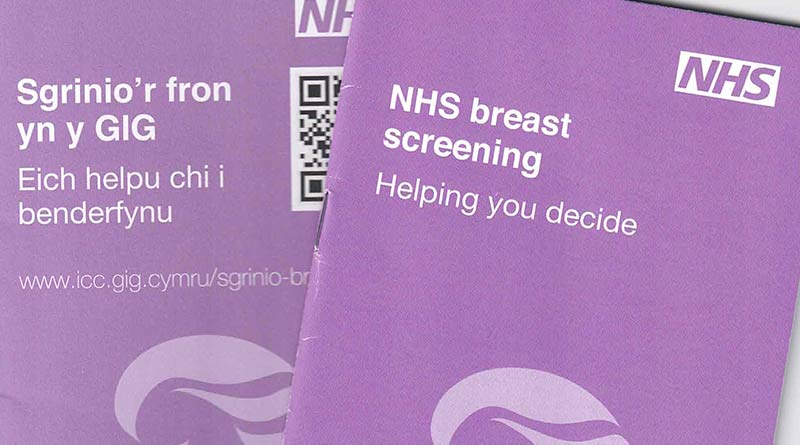Breast cancer – to screen or not to screen – Part 1

Introduction
Last autumn, I received an invitation to attend breast screening. The letter came with an accompanying booklet called "NHS breast screening. Helping you decide" (Ref 1). (NHS stands for the National Health Service for non-UK recipients of this note). The booklet tried to help women to weigh up the choice – to screen or not to screen. The key trade-off in the booklet stated, “for every 1 woman who has her life saved from breast cancer, about 3 women are diagnosed with a cancer that would never have become life threatening.” There were no time scales on this, so I wrote to Breast Screening Wales as follows:
“I have received an invitation to a routine breast screening test and an accompanying booklet called ‘NHS breast screening. Helping you decide.’
“Please can you let me know the definition of a life saved in the booklet? When it says ‘for every 1 woman who has her life saved from breast cancer, about 3 women are diagnosed with a cancer that would never have become life threatening’ what is meant by a life saved? We’re all going to die one day, so this must mean life extension in some way and I’m wondering what time scale this means.”
I received a prompt reply as follows:
“In 2012, the government asked Sir Michael Marmot to chair an independent review of the evidence for breast screening. He found that in the UK the screening programme prevents around 1,300 deaths from breast cancer each year by diagnosing breast cancers before they spread to other part of the body and cannot be treated. But he also found evidence of over diagnosis and that for every death prevented by screening around 3 women will be treated for a cancer which would not have harmed them, cancers that remain insitu and do not spread. Overall, however, the review concluded that breast screening has significant benefit and should continue. Life expectancy will vary from woman to woman dependant on the stage and type of cancer diagnosed along with any other comorbidities.”
That didn’t answer my question, but the reply linked to the Marmot report that might. The report was published online first on 6th June 2013. It was called “The benefits and harms of breast cancer screening: an independent review” (Ref 2).


